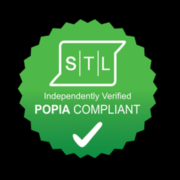SECURING YOUR DOMAIN NAME
When moving online, securing your domain name is of vital importance. Globally, Toys R Us had to close its stores due to its failure to innovate its business model, incorporate technology and adapt to changing consumer behaviour. One of the factors in its undoing has been its failure to successfully move its shopping experience online in the way competitors like Amazon, Walmart and Target have been able to. Luckily for us, Toys R Us South Africa has embraced technology. The South African toy retailer has an online site and two apps, Toys R Us Shopping App and Babies R Us Registry App – and was therefore, amongst other reasons, not affected by the Toys R Us global closure.
Having a company website / online store in this day and age is becoming pivotal to the success of any organisation and securing your domain name is the first step. However, once your e-commerce business starts to flourish, competitors and online criminals might be looking to take advantage of your success.
Reasons to secure your domain name:
”Cybersquatting” – the practice of registering, especially well-known company or brand names, as domain names, in the hope of reselling them at a profit. In 2015 Ye Li registered rolls-roycemotorcars.co.za, whereafter she offered to transfer the domain name to its rightful owner against payment of US $ 5 000.
“Typosquatting” – also known as URL hijacking, is a form of cybersquatting that targets internet users who incorrectly type a website address into their web browser. In the infamous Tvvitter attack, a look-alike fake website “Tvvitter” was created in order to steal users’ login credentials.
“Drop-catching” – can be described as the automated registration of a domain name that has lapsed due to non-payment of the renewal fee. In August this year a fraud alert was published after cipro.co.za, belonging to the predecessor of the Companies and Intellectual Property Commission (CIPC) was scooped up by a Mexican man, Miguel Antonio Gomez, after its registration lapsed. He used the domain to redirect browsers to a Czech website providing hacking services. By getting his hands on the domain name, he could also potentially distribute legitimate-looking phishing emails which could be crafted to steal sensitive information.
Conclusion
Securing your domain name is vital to protect your brand. Unfortunately, many people do not think about protecting their domain name until it is too late. Disputes have arisen more and more frequently over the past few years with domain names becoming an invaluable commodity. Fortunately, South Africa has an established, cost efficient and expeditious dispute resolution procedure for domain name conflicts. The procedure entitles any party to lodge a complaint against a co.za domain if it “takes unfair advantage of the rights” of that party or “is contrary to law or likely to give offence to any class of persons”.
SwiftTechLaw specialises in technology law and will gladly assist you with any matters relating to domain name registrations and disputes. Contact us here.











